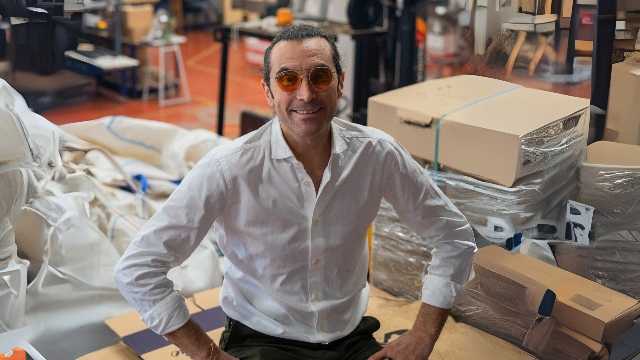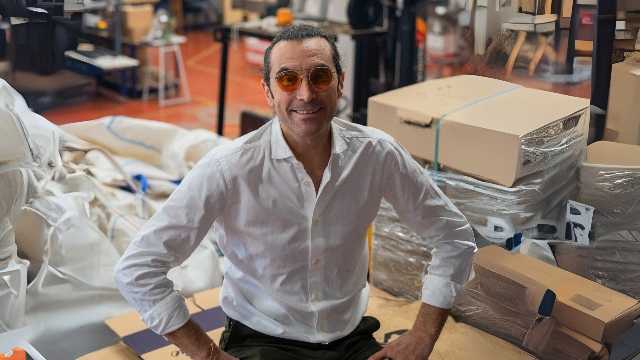
Matteo Borea, strategic consultant and innovator in the coffee sector, co-owner of the historic La Genovese coffee roasting company in Albenga, Italy, and author of the blog matteoborea.it, a reference point for evolved coffee entrepreneurs, shares with us an analysis of the coffee industry regarding the acquisition of JDE Peet’s and the possible decision for Coca-Cola to sell Costa Coffee. Below, we share his opinion.
The strategic illusion of scale
by Matteo Borea
MILAN – “In the span of just 24 hours, the coffee industry witnessed two corporate giants moving in radically opposite directions, offering a fascinating glimpse into how even the biggest players can misread the essence of coffee.
On one side, Keurig Dr Pepper announced the acquisition of JDE Peet’s (owner of Douwe Egberts, L’Or, and Senseo) for €15.7 billion. On the other, Coca-Cola signaled its intention to divest from Costa Coffee, a chain it acquired for over $5 billion in 2018. The reason? As their CEO bluntly admitted: “Our investment in Costa is not where we wanted it to be.”
Who made the smarter move? At first glance, both companies seem to be responding strategically to market signals. Yet beneath the surface lies a more complex and telling narrative.
Keurig Dr Pepper is chasing numbers: global coffee consumption is surging, particularly across Asia. Climate disruptions and rising demand have sent coffee prices climbing. From a financial perspective, it all adds up to a compelling case for consolidation.
Coca-Cola, conversely, seems to have encountered a reality many underestimate: coffee is not simply a beverage category—it is a cultural language, one that resists shortcuts and scale.
What both moves reveal is this: while capital can buy brands and distribution networks, it cannot buy authenticity.
What the data reveals (and what it hides)
Ownership does not guarantee loyalty. During the years Coca-Cola struggled to breathe new life into Costa, many independent roasters thrived. Average retail prices for specialty coffee increased by 15–25%, and customers continued to pay—gladly.
It’s something I often explore in my blog: the shift from commodity to community is no longer just a trend; it’s the foundation of specialty coffee’s growing influence.
When two giants clash, a third prospers
There’s an old Italian saying: “when two fight, the third one prospers”. As multinationals battle over acquisitions, a quiet but powerful revolution continues in small roasteries, independent cafes, and origin-based partnerships.
Unlike corporations beholden to quarterly reports, these businesses invest in long-term relationships with producers, with baristas, with customers. They understand that coffee isn’t consumed, it’s experienced.
And as I often write in my newsletter, the deepest value in coffee lies not in the product, but in the connection it enables.
What independents understand that corporations often miss:
- Scale demands uniformity; craft demands nuance.
- Brand equity can’t substitute for earned trust.
- Coffee isn’t just another SKU—it’s a ritual, a narrative, a sense of place.
- Real relationships don’t appear on balance sheets, but they define market resilience.
Positioning for the future
For independent roasters and specialty cafes, this moment is rich with opportunity. Here’s why:
- As mass-market brands consolidate, their prices rise and their offerings converge. This creates space for differentiated experiences.
- Standardization at scale makes authentic service feel luxurious. The more uniform the giants become, the more valuable real human connection is.
- Consumer fatigue with “big coffee” opens the door to more intentional, local choices.
Take, for instance, the contrasting trajectories of Costa Coffee and small specialty roasters. While the former struggled to retain relevance, the latter quietly built global followings and premium pricing on the strength of quality and story.
The real competitive edge
It’s no longer about being everywhere. It’s about being indispensable somewhere.
For those building meaningful coffee businesses, this means:
- Focusing on craft over scale.
- Prioritizing relationships over reach.
- Communicating origin, method, and mission, not just product.
And for those who are curious about how to translate these principles into business strategy, it’s a theme I unpack regularly on my blog and in my newsletter.
What this signals for the industry
The coffee market isn’t simply growing; it’s polarizing. Mass versus micro. Scale versus soul. Convenience versus craft.
As the giants chase shelf space and quarterly targets, the most enduring value will be created by those who deepen roots, not widen footprints.
The big players will likely continue to generate billions. But they may never build the kind of loyalty that turns a first-time buyer into a lifelong advocate.
And in that quiet gap between growth and meaning, an entirely different kind of success is waiting.
Because while corporations trade assets, true coffee entrepreneurs build legacies one thoughtful, intentional cup at a time.
The future of coffee won’t be bought. It will be earned”.
Matteo Borea
The post Matteo Borea about the coffee’s billion-dollar war: “Why the winners won’t be who you think” appeared first on Comunicaffe International.

